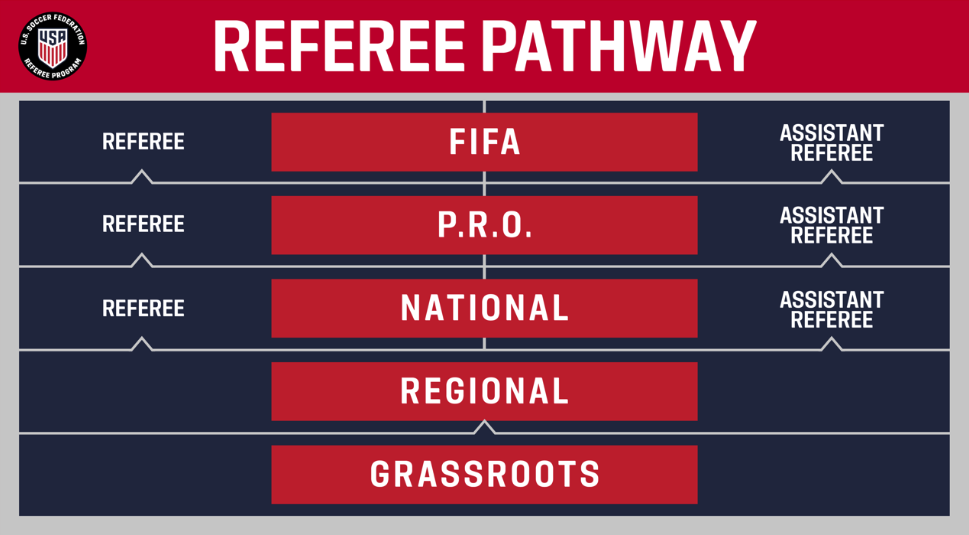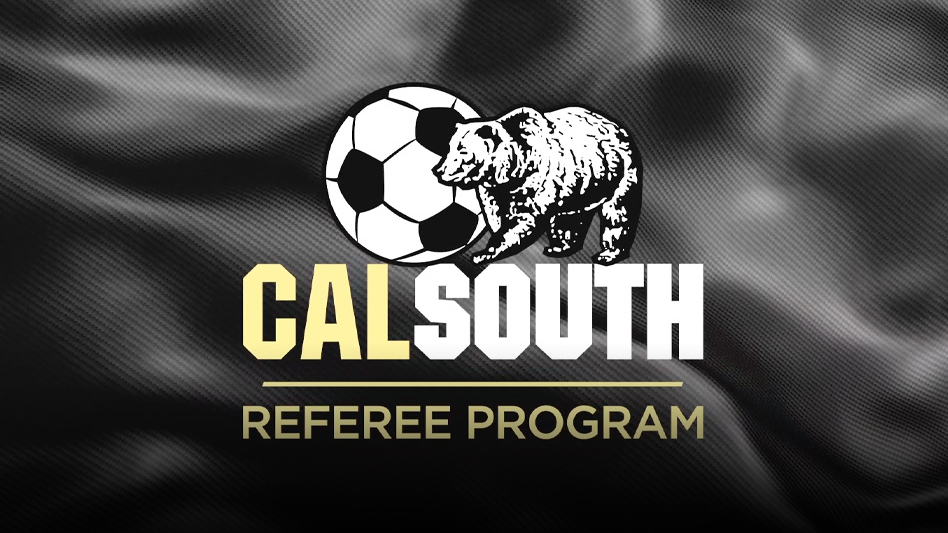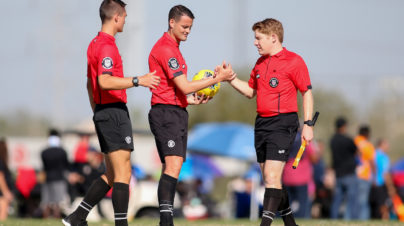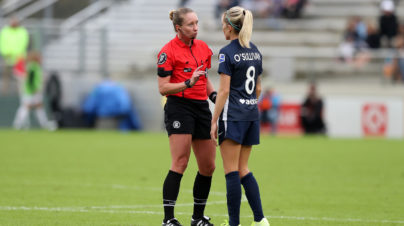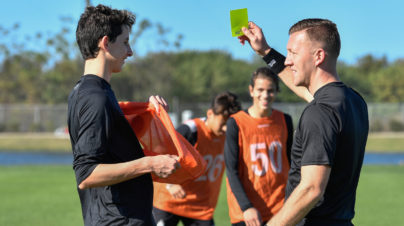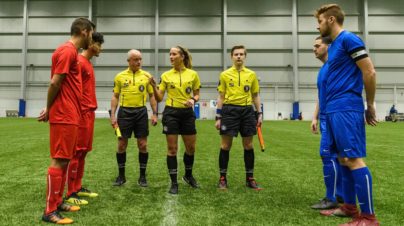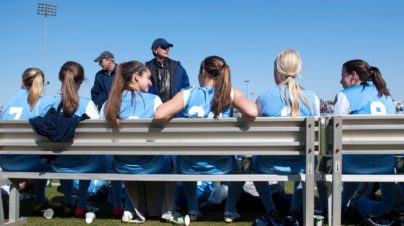How to Become a U.S. Soccer Referee in California South
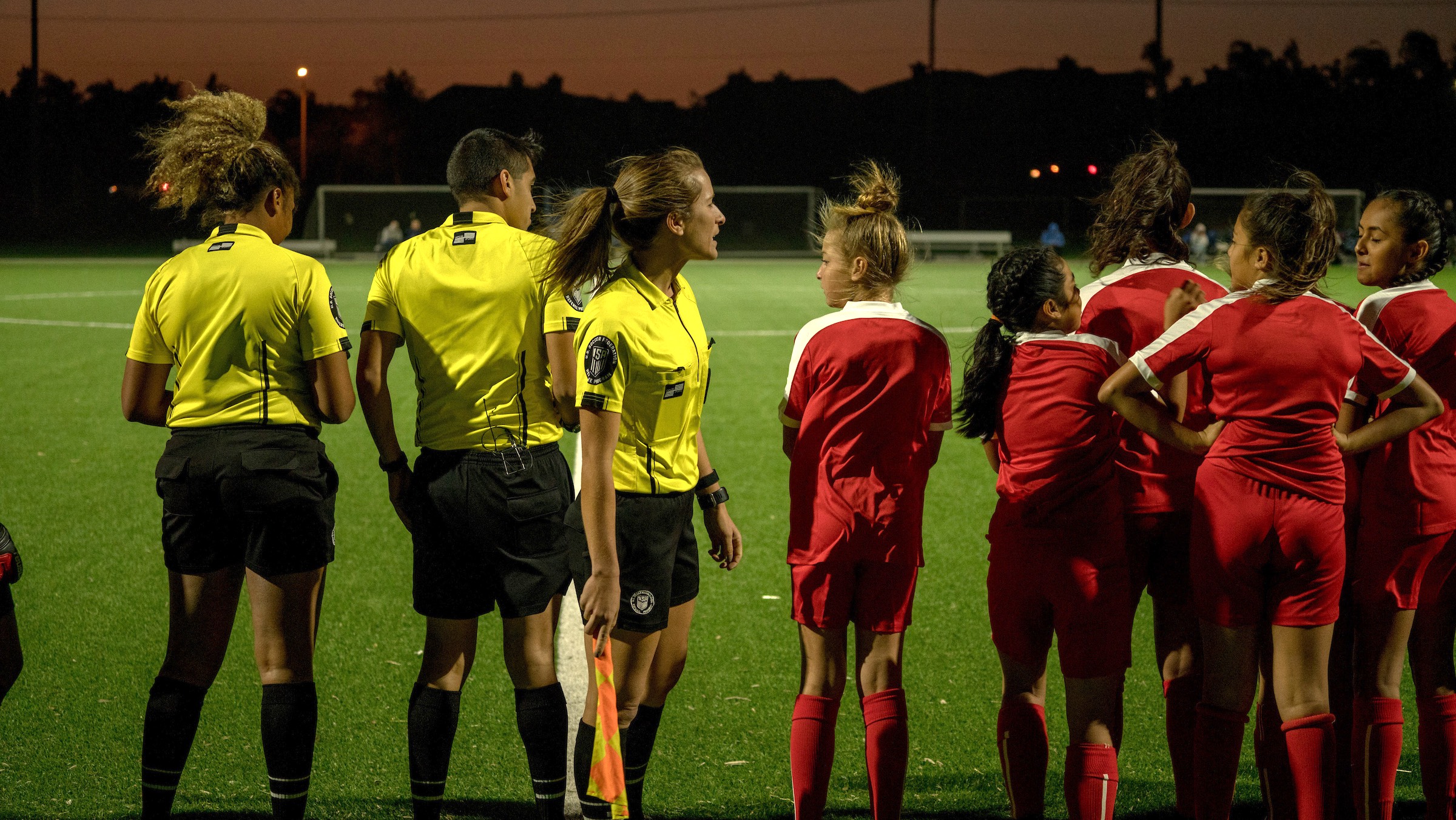
By Adam Schwager
SoccerWire Staff Writer and Certified Referee
Becoming a referee can become a difficult process to navigate. Sometimes, it can feel like the hurdles to jump through aren’t even worth your time and effort. With this resource, we hope to simplify the process, listing out everything you need to know in easy and understandable instructions.
Why Should I Become A Referee?
There are a multitude of reasons to become a referee, some of which we laid out last fall. If I had to give a concise answer to this question, it would be to capture that competitive edge that can leave you if you leave the game. Chances are, every one of our playing days are limited. So many people find themselves graduating high school and phased out of the sport. Even among the talented few that find themselves playing Collegiately, very few end up playing competitively past their school days. Yes, you might join an adult recreational or amateur team, but that feeling of raw competitiveness just isn’t the same.
With refereeing, you get to be in the heart of the action again. And while you’re not competing against another team, you’re competing against yourself to be the best referee you can be. After every game you can identify areas of improvement for yourself to work on, and over time you can feel your game elevate to new levels.
How Does the Referee System Work?
In the United States, all club referee certifications are handled by U.S. Soccer, which operates under the International Football Association Board (IFAB), and teaches their Laws of the Game. U.S. Soccer sets up a clear pathway for referees to climb all the way to becoming a FIFA-certified referee, the highest level that allows referees to officiate international games.
To enter the referee ranks, all beginners must start at the Grassroots level. Don’t be mistaken, even though Grassroots is the lowest level available, the designation provides you with the ability to referee a vast majority of competitive youth competitions, adult amateur matches and recreational matches. The assignments you’ll be able to receive under a Grassroots license will certainly hold you over for at least a couple of years as you develop your skills to move your way towards a Regional certification if later desired.
What Qualifications Do I Need to Become a Referee in Southern California?
- Be 13 years of age or older.
- The ability to understand and comprehend the Laws of the Game.
- Strong communication skills to work with assignors, fellow referees, coaches and players.
- The ability to pass a U.S. Soccer Federation Gold Standard NCSI Background Check (18+).
- A level of fitness that allows you to keep up with the pace of play. You don’t have to be a physical specimen, but if you have trouble running without gasping for breath, refereeing may not be the best option for you at the moment.
How Do I Become a Grassroots Referee in Southern California?
1. Register through the Cal South Online Registration System
To register for a class in Cal South, you first need to head to their registration website and either create an account or, if you are already registered as a player, parent or coach, use the account you have already established in the Cal South system.
2. Register for a Virtual and In-Person class
Once you’ve signed up for or signed into your account in the registration system, you should sign up for the online grassroots course and find a time and location that works for you to complete your in-person training. To sign up for the online course, it requires a $55 USSF Referee Registration Fee which is handled directly through the Cal South Soccer website. Registration for this will give you access to the U.S. Soccer Learning Center’s Grassroots Referee Course, the country-wide standard for new referees.
You will also need to make sure there is a time and place that works for you to complete your in-person training, a 5-hour classroom session that caps off your training. You can register for the in-person training by heading to their website and selecting “New Referee Entry Courses” from their dropdown menu. This can be done before or after registering for your online course, but make sure you will have enough time to complete all the prerequisite steps before your class date, or you may not be allowed to attend.
3. Complete Fingerprint Clearance (18+)
If you’re over the age of 18, you will need to complete a fingerprint clearance to work in Cal South. Unlike many other states, Cal South put the entire clearance process in the referee’s hands, meaning it is up to you to find a fingerprinting location and complete the process. To complete this, look up “local live scan locations” on google, and take this form with you to the location when you have set up an appointment. This process will generally cost anywhere from $15-$30 and take up to 14 days to complete, so it is recommended that you prioritize this step the minute you decide to become a referee.
If you are under the age of 18 you can skip immediately to step 5.
4. Complete SafeSport Training (18+)
Aspiring referees 18 and older must also complete the hour-long SafeSport clinic, a fairly new governmentally-required training designed to help all officials involved in youth sports identify and report abusive behaviors to help keep our young athletes safe.
5. Complete Online Modules through the U.S. Soccer Learning Center
When you’ve signed up for the class, completed your background check and dealt with the SafeSport, you will receive access to two modules, the “Introduction to Safe and Healthy Playing Environments” and “Online Grassroots Referee Course”. In total, this takes about 4.5 hours to complete, but you aren’t required to complete the entire course in one sitting.
This course contains all the basic information on the Laws of the Game and how to enforce them. If you want to be as prepared as possible for your first day on the job, it’s important that you take this step very seriously and pay close attention.
6. Attend Your In-Person Session
In-person sessions are currently taking place in Cal South, despite the temporary shutdown due to the pandemic. These courses generally take place on the weekends, over the course of five hours where you get to engage with referee instructors, go over real-world scenarios, and ask any burning questions that may have been unanswered in your online training.
7. Receive Your Badge
Congratulations! Once you’ve fully completed all the previous steps, you will receive your badge, either at the in-person session or later through the mail. The learning process isn’t completely over though! In Cal South, all referees are required to attend five hours of supplemental training over the course of the year in order to recertify for the upcoming year.
Making Contact with Assignors in Cal South
While most state associations emphasize relationships with assignors, Cal South pushes new referees to find a Referee Association that fits their geographical restrictions and their competition desires. The Cal South website maintains a list of local Referee Associations, most of which are designated to a singular county. Each association has different meeting times (listed on the website), and you can join more than one if you have the time. Every listing on the website also includes the name and email address of the president of the association, and in many cases, the assignor’s information as well. Find an association that fits your needs and reach out to their president and/or assignor to ask how you can get involved.
Frequently Asked Questions?
Q: Which part of the state counts as “California South”?
A: While there is no set boundary, the assignors in California South start in the suburbs of Bakersfield and go all the way down the state. If you live in the Fresno area (or north of that), you should check out our upcoming article “How to Become a Referee in Northern California” (Coming Soon)
Q: What equipment will I need? How much will it cost?
A: To referee your first game you will need a full jersey set, which includes at least the yellow referee jersey (ideally get both yellow and green to start), referee shorts, referee socks, cards, flags and a whistle. You can find a package from Official Sports, the exclusive USSF uniform supplier, that includes everything you need to start day one for as little as $50.95 plus shipping and handling. Additionally, everything you buy as a part of your refereeing career is considered a work expense, making it tax deductible at the end of the year.
Q: How much money can I earn?
A: The amount you can earn varies depending on a multitude of factors, including the age of the players you are refereeing, the leagues and tournaments in which you plan to officiate and what type of event you are officiating. For example, league games tend to pay more per game, but have longer game lengths while tournaments generally pay less on a per game basis, but have truncated game lengths that allow referees to work more in a given day.
While this shouldn’t be treated as gospel, a good rule of thumb for youth games is that for every minute of game length, an assistant referee makes about $0.50, while a center referee makes around $0.70-$1.00. That would mean in a standard 90-minute game each assistant would make $45 while the center would make $63-$90.
Q: How do I get paid? And how often?
A: Different assignors and competitions have different forms of payment, which come with differing payment speeds. A select few leagues offer cash payment directly to the referee on the field, but most competitions pay the assignor who then pays the money to referees either via direct deposit through assigning applications, or through cumulative checks sent to home addresses.
Q: What’s the best way to practice and improve quickly?
A: The best way to practice is to work your own games! You can spend as much time as you like thinking about refereeing in theory, but until you’re out there, on the pitch, making your own calls, you won’t be able to understand what refereeing is truly like. Let your assignors know your skill level and the level of competition you feel comfortable with, and they can help get you some games that will help improve your skills.
Also, be receptive to constructive criticism from your teammates. When you’re a fresher referee, your assignors will generally try to place you with some veterans who have worked hundreds, if not thousands of games. They will have great advice for you as you begin your journey in the referee world.
SOCCERWIRE MARKETPLACE
- The St James FC Boys Travel Tryouts
- OFFICIAL BAYERN MUNICH SUMMER CAMPS U.S.
- JOIN THE ALLIANCE!
- OFFICIAL FC BARCELONA CAMPS U.S.
- The Cup San Diego - Hosted by Legends FC
- Players Wanted - Undergraduate or Post-graduate
- Head Coach - South Region at The St. James FC
- Travel Coach - North Region at The St. James FC
- Program Manager - Chantilly at The St. James FC
- Girls Director of Player Development: South Region

